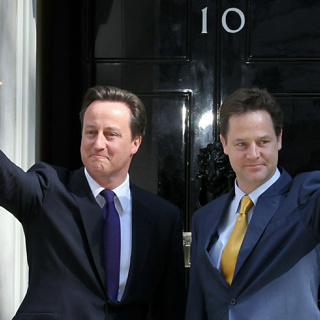
52. Two Young Men Unleashed: James
The original jewel in the British imperial crown wasn't India but North America. And William Pitt the Elder, Prime Minister in all but name since our last episode, was going to make sure the armed forces there were up to the task of breaking the stranglehold of the French. That meant spending what was needed, but also making sure that forces were well-led. Pitt was ready to do whatever it took to make that happen, even if it meant breaking with centuries of tradition, and promoting men on merit not aristocratic background. That made it possible for the first young man unleashed, of the two in this and the next episode, James, or General Wolfe as he came to be known, to win a comprehensive and decisive victory over the French in Canada. Plus, in this episode: the extraordinary victory of British and Hanoverian infantry over French cavalry at the Battle of Mindon, was as spectacular as it was unprecedented. Illustration: The Death od General Wolfe, by Benjamin West - The Yorck Project (2002) 10.000 Meisterwerke der Malerei (DVD-ROM), distributed by DIRECTMEDIA Publishing GmbH. ISBN: 3936122202., Public Domain, https://commons.wikimedia.org/w/index.php?curid=160192 Music: Bach Partita #2c by J Bu licensed under an Attribution-NonCommercial-No Derivatives (aka Music Sharing) 3.0 International License
13 Elo 202114min

51. The next round
An Admiral’s career reaches a sticky end as he’s shot to encourage the others to do better. A remarkable politician, denied advancement repeatedly, finally breaks through to power. Another war spreads across the world but, with fine leadership, this time Britain will spend the money necessary to make sure it’s truly decisive. It’s the beginning of the Seven Years’ War and the time of William Pitt the Elder. Illustration: William Pitt the Elder in 1754, from the studio of William Hoare National Portrait Gallery 1050 Music: Bach Partita #2c by J Bu licensed under an Attribution-NonCommercial-No Derivatives (aka Music Sharing) 3.0 International License
6 Elo 202114min

50. Preparing for next time
In the uneasy peace between the War of Austrian Succession and the Seven Years' War, Britain set about securing its growing imperial power. Central to it was its position in North America, as many visionaries saw, not least the then committed supporter of the Empire, Benjamin Franklin, in Pennsylvania. But that meant dealing with the French stranglehold around the British Colonies in what is now the United States. Three attempts, first manned and led by Americans (George Washington's first and defeated command), and then directed by Brits (to no better success), all failed spectacularly, demonstrating nothing so much as the incompetence of the British military whether colonial or from the mother country. On the other hand, British force did well in another appalling and shameful act of ethnic cleansing, very much in the spirit of the Duke of Cumberland's actions towards the Scottish Highlanders, up in Nova Scotia, present-day Canada. Illustration: At one time a visionary for the British Empire: Benjamin Franklin by Benjamin Wilson, in 1759. Public Domain via Wikimedia Commons Music: Bach Partita #2c by J Bu licensed under an Attribution-NonCommercial-No Derivatives (aka Music Sharing) 3.0 International License
30 Heinä 202112min

49. Oh no! Not more Stuarts...
While the British army was on the European continent, putting up a pretty useless fight against the French in the Austrian Netherlands, Charles Edward Stuart launched a new uprising - or possibly rebellion, depending on your point of view - back in Britain. Known as Bonnie Prince Charlie to some, his uprising - the final attempt to put the Stuarts with their absolutist views of monarchy back on the throne - was far from bonnie in its consequences for the people of Scotland. Partly because he turned out to be a less attractive character than one might believe, but even more because of the programme of ethnic cleansing run in the Highlands by the Duke of Cumberland, who came to be known as 'Butcher Cumberland', the king's younger son and a hopeless general against armies, but highly effective against disorganised insurgents and civilians. Nothing bonnie about this ugly episode in the history of the British nations. Illustration: Not so bonnie in later life. Prince Charles Edward Stuart by Hugh Douglas Hamilton, circa 1785 National Portrait Gallery 376 Music: Bach Partita #2c by J Bu licensed under an Attribution-NonCommercial-No Derivatives (aka Music Sharing) 3.0 International License
23 Heinä 202113min

48. The Austrian Throne
There was no real problem with a woman inheriting the Austrian throne. But it could be a useful pretext for war by nations keen on advancing their own interests militarily. Frederick II of Prussia was quick to go to war - the Philosopher Prince became a Military King when he had the power to - and he seized the rich Austrian province of Silesia (which is actually Polish, but neither the Austrians nor the Prussians cared about that). Britain kept fighting the War of Jenkins' Ear against the Spanish, but then it got subsumed into the War of Austrian Succession, which it joined on the Austrian side as it had in the War of Spanish Succession. It did badly in the land war, under George II who, at Dettingen, became the last British sovereign to appear on a battlefield, and his younger son, the Duke of Cumberland, who proved pretty hopeless. They fought the French in America, chiefly through the Massachusetts colonists, and in India, through the East India Company. Most gains were handed back at the end of the fighting, except that Prussia hung on to Silesia. With British backing. Which annoyed Austria a lot, and that had consequences for the next war. A war that was bound to come, since this one had sorted out very little, apart from allowing Maria Theresa to mount the Austrian throne after all. Illustration: Empress Maria Theresa, portrait by Martin van Meytens, 1759. Public domain (published anywhere (or registered with the U.S. Copyright Office) before 1926 and public domain in the U.S.) Music: Bach Partita #2c by J Bu licensed under an Attribution-NonCommercial-No Derivatives (aka Music Sharing) 3.0 International License
16 Heinä 202114min

47. Time for another war
Ah, those were the days. When Britain went to war over a sea captain who'd had an ear cut off. And taught the Spanish a thing or two. Except, of course, that Britain didn't go to war for that reason. And they taught Spain nothing. In fact, the Spanish taught the British a lesson, though we shall discover later that it wasn't listening. It took Britain eight years to decide to go to war with Spain, ostensibly over the outrage of Jenkins' Ear. That delay shows how little the war had to do with the atrocity. In reality, it was about bringing Walpole down, on the one hand, and looking for new business opportunities, on the other, with war as the means to break the stranglehold of competitor nations. Besides, despite a promising start with a famous if trivial victory for which all the Portobellos in Britain are called, Admiral Vernon went on to massive defeat at Cartagena. Though, oddly enough, that has a monument too, in a place that is certainly iconic, but in American rather than British history. Proving once more that history is full of ironies. Illustration: Robert Jenkins hands a dismissive Prime Minister Robert Walpole his severed ear, as his companions lift off his wig to show the scar; one of Walpole's associates displays total indifference, preferring to converse with a lady. Satirical Cartoon, 1738, British Museum, London. Public domain Music: Bach Partita #2c by J Bu licensed under an Attribution-NonCommercial-No Derivatives (aka Music Sharing) 3.0 International License
9 Heinä 202114min

46. Freedom
Britain, its idealists claimed, was launching an Empire of Freedom. The reality, sadly, was rather different. Europeans, with Brits in the forefront, had developed a love of tobacco, and above all a sweet tooth. They wanted sugar for their cakes and pastries, but above all for their coffee, chocolate and, that new British institution, tea. But sugar production requires backbreaking work under terrible conditions. This was work, and in conditions of heat, humidity and disease, few Europeans felt they could handle. And so Africans were brought in to do it instead. Not voluntarily. The British Empire of Freedom was built, and from early in its existence, on a foundation of slavery. Illustration: William Clark, Slaves cutting sugar cane. Held and digitised by the British Library, and uploaded to Flickr Commons. Music: Bach Partita #2c by J Bu licensed under an Attribution-NonCommercial-No Derivatives (aka Music Sharing) 3.0 International License
3 Heinä 202114min

45. Robinocracy
'Robin', or Robert Walpole, Britain's first and longest-serving Prime Minister, came to be known as 'Cock Robin'. Possibly because people around him felt his success had made him cocky. The regime over which he presided was termed the 'Robinocracy'. It was an era of peace, stability and improving government finances. Not enough to save him ultimately from his adversaries, dissident Whigs such as George Grenville and William Pitt the Elder - in other words, members of his own party. He'd given them peace, but they wanted war. Specifically, they wanted Britain's voice to be heard on the world stage. We're on the verge of Britain becoming an imperial power, which we'll be finding out more about in coming episodes. But to make that possible we needed to be a lot more warlike than Cock Robin wanted. So the Robinocracy had to end. Illustration: The Stature of a Great Man or the English Colossus". Satire of Sir Robert Wapole alluding to his "extreme reluctance to engage in war...to resist the aggressions of Spain and France". Caption reads: "Why Man, he doth bestride of narrow World Like a Colossus, and we petty Men – Walk under his huge Legs, & peep about To find ourselves, dishonourable Graves Men at some times are Masters of their fates: The fault, dear P––y is not in our stars, But in ourselves, that we are Underlings —Shakespear [sic]". Public domain picture, from the United States Library of Congress's Prints and Photographs division under the digital ID cph.3b03411. Music: Bach Partita #2c by J Bu licensed under an Attribution-NonCommercial-No Derivatives (aka Music Sharing) 3.0 International License
27 Kesä 202110min






















